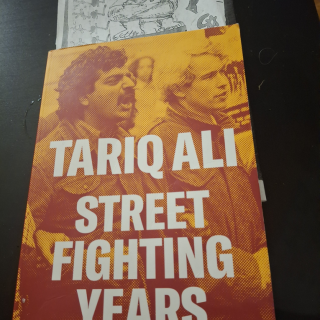Advertisement
Thurgood Marshall is one of the most overlooked and underappreciated freedom fighters of the twentieth century. For more than two decades he was the preeminent lawyer for the National Association for the Advancement of Colored People (NAACP); it was Marshall who founded and directed the organization’s Legal and Educational Defense Fund.
The subject matter in which he dealt was broad: segregated schools, the rights of the accused, voting discrimination, questions on federal jurisdiction. (Not all of his legal acumen was directed at such weighty matters. A series of stern letters from Marshall to the Whitman candy company convinced them to cease selling a candy they called Chocolate Covered Pickaninny Peppermints that came in a box festooned with racist caricatures of black children.)
His record before the United States Supreme Court–he argued thirty-two cases and won twenty-nine of them–remains intact. In 1961 President John F. Kennedy appointed Marshall to the United States Court of Appeals for the Second Circuit, a nomination that southern senators held up for months. He remained on the Appeals Court until 1965 when President Lyndon B. Johnson appointed him to be United States Solicitor General. Marshall won fourteen of the nineteen cases he argued on behalf of the United States. In June of 1967, President Johnson nominated Marshall to fill a vacant seat on the United States Supreme Court. He remained a stalwart defender of the desperate and marginalized until he left the bench in 1991 due to poor health.
Marshall, born and reared in Maryland, wanted to attend law school at the University of Maryland, but it was closed to black students. Instead he made his way to the law school at historically black Howard University in Washington, D.C. In hindsight his inability to attend law school at Maryland was a godsend to the black community, because it was at Howard that Marshall and hundreds of other black students were taught and mentored by Charles Hamilton Houston, one of the most brilliant and resourceful lawyers in America. Houston had shut down the nights only law school and rebuilt it so that it offered a first class curriculum taught by sharp legal minds who looked upon the law as a tool for social change. When he left Howard Law School to work for the NAACP in New York, he soon sent for his bright young protégée. The two wielded the law as though it were a fine surgical instrument. Marshall was so spellbinding a speaker and so deft an attorney that some whites would attend court solely to watch the “nigger lawyer from New York” in action.
As Marshall and the NAACP began piling up victories, his name became a sort of talisman to the black community. When southern blacks heard the words “Thurgood Marshall is coming,” they swelled with pride and sometimes a little more courage in the face of Jim Crow. The same pronouncement, however, whipped white southerners into a conniption fit. Here was a man almost preternaturally brave–Marshall repeatedly risk his life by trying some of the most difficult cases in extremely hostile territory and once barely escaped being lynched–brilliant and so persuasive that even some southern judges were forced to admit that the South was wrong and the Constitution was right!
Nowhere was white southern apoplexy on better display than during Marshall’s confirmation hearing held by the United States Senate. The Committee dragged out the hearing over the course of about two weeks, abruptly starting and stalling and stopping at the whim of its chairman, the uber racist James O. Eastland. It is unarguably the most contentious Senate confirmation hearing in our country’s history. That it was held during a time of such incredible turmoil in the United States–the collapse of the War on Poverty, the youth quake, the Vietnam War and violent urban rebellions in a number of northern cities–makes Showdown all the more compelling.
In Showdown Haygood presents the hearing as a sort of play within a play. Each chapter covers a day in the confirmation hearing process, and in each chapter he looks back in history to give us the context of actors and events so that the reader sees exactly what Thurgood Marshall spent his whole life fighting against. The folksy Sam Ervin, an ardent segregationist before his turn as chairman of the Senate Watergate Committee made him a staunch ally of civil liberties, is juxtaposed against the student sit movement which started in his home state of North Carolina and spread across the south. Arkansas Senator John L McClellan, who was still smarting from the 1957 crisis at Central High School in Little Rock, adroitly paired the race riots of 1967 with Marshall’s support for the rights of the accused, thereby making Marshall appear soft on crime. And there was Strom Thurmond of South Carolina. The man who worked so hard to keep black people down had fathered a child in the 1920s with a black maid who worked for his family. Thurmond peppered Marshall with questions about the Thirteenth Amendment, interracial marriage–the solicitor general was married to a Filipino woman–communism and the Civil Rights Act of 1866. Then he went for the jugular, asking Marshall if he was prejudiced against white southerners.
Although boiling with rage on the inside as racist politicians made sport of his work and maligned his reputation, Marshall remained cucumber cool. Haygood also shows us that President Johnson was more nervous about his nominee than we have heretofore known. He went so far as to put out feelers to black Republican lawyer William Coleman lest Marshall’s nomination fail.
Even though I know that Marshall was confirmed and served on the Court for almost twenty-five years, I found myself on the edge of my seat wondering what the outcome would be. Readers who know little about African American history or the modern civil rights movement may be surprised at or repelled by the vituperative, naked racism displayed by highly placed government officials. They should marvel, too, at the dignified and restrained way Marshall and his wife handled themselves during the hearings.
Showdown is the best kind of narrative history. The story line is taut, the characters are complex, and the backdrop is finely drawn. As with all of Haygood’s books, Showdown has a somewhat breathless quality to it that made me sorry I had to turn out the light and go to bed. In this propitiously timed book, Haygood has reminded us how important Marshall was, not only to the African American community, but to the entire country. Every one of us lives in a world shaped by this extraordinary man.
Marshall often said “One of these days we will make democracy in America work.” On September 1, 1967, it did just that.



